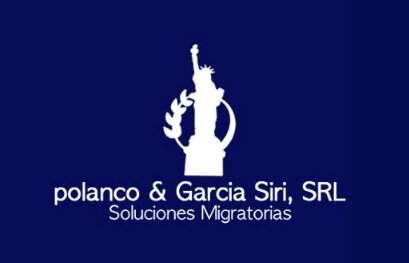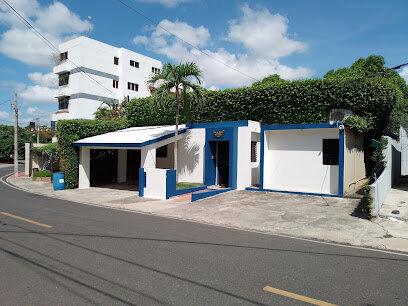Best Arrests & Searches Lawyers in Santiago de los Caballeros
Share your needs with us, get contacted by law firms.
Free. Takes 2 min.
List of the best lawyers in Santiago de los Caballeros, Dominican Republic
About Arrests & Searches Law in Santiago de los Caballeros, Dominican Republic
Arrests and searches in Santiago de los Caballeros, as in the rest of the Dominican Republic, are regulated by the country’s Constitution and the Criminal Procedure Code (Código Procesal Penal). These laws establish the procedures, rights, and obligations regarding when and how law enforcement can deprive an individual of their liberty or search their person, home, or belongings. The rights of individuals during encounters with police or other authorities are protected, but it is crucial to understand what the law allows and what must be respected both by citizens and by police officers.
Why You May Need a Lawyer
Legal situations involving arrests and searches can be complex and stressful. Individuals may need a lawyer for reasons such as:
- Being arrested or detained by police without clear explanation.
- Police searching a home or property unexpectedly.
- Concerns about rights violations during a stop or search.
- Unfamiliarity with legal processes or required documentation.
- Fear of false accusations or wrongful detention.
- Uncertainty about bail, release procedures, or court appearances.
- The need to challenge evidence obtained during a search.
A lawyer with local expertise can explain your rights, guide you through proceedings, ensure that procedures are followed correctly, and help protect your interests.
Local Laws Overview
Key aspects of local laws in Santiago de los Caballeros regarding arrests and searches include:
- Right to Information: Upon arrest, police must inform you immediately of the reasons and of your rights, including the right to remain silent and to legal assistance.
- Arrest Warrants: Generally, arrests require a judicial order, except in cases where someone is caught in the act (flagrante delito).
- Search Warrants: Searches of homes or private premises typically require a warrant issued by a judge, unless immediate action is necessary to prevent a crime or secure evidence.
- Treatment During Detention: Individuals must be treated humanely and must be brought promptly before a judge, usually within 48 hours of their arrest.
- Due Process: The law guarantees due process rights at every stage, ensuring legal procedures are respected.
- Legal Representation: Anyone arrested or detained has the right to consult with a lawyer and to notify a family member or a trusted person.
- Evidence Protection: Evidence obtained through illegal searches may be contested in court and possibly ruled inadmissible.
Frequently Asked Questions
What should I do if I am arrested by police in Santiago de los Caballeros?
Stay calm, do not resist, and ask the officers to identify themselves. Request to know the reason for your arrest and immediately ask for a lawyer. You have the right to remain silent until legal assistance is present.
Can the police search my home without a warrant?
Generally, the police must have a judicial warrant to search your home. Exceptions only apply in urgent situations, such as pursuit of a suspect or when evidence might be destroyed if they wait.
How long can I be held after being arrested?
You should be brought before a judge within 48 hours of your arrest, who will review the legality of the detention.
What rights do I have during a police search of my property?
You have the right to be present during the search, to ask for a copy of the warrant, and to request that a trusted person or witness be there. You may also record or document the search, if possible.
Do I have to answer police questions during or after an arrest?
No, you have the right to remain silent and to be assisted by a lawyer before answering any questions.
What happens if the authorities do not follow proper procedures?
Any evidence obtained through illegal means can be challenged in court. Also, officers may be subject to disciplinary or legal consequences for violations of your rights.
Can I be arrested for refusing to consent to a search?
Refusing a search, unless the officers have a valid warrant or legal ground, is not a crime and does not justify an arrest. Always insist on seeing a warrant before allowing a search.
What should I do if I witness an illegal search or arrest?
Document what you observe if safe to do so, note officers’ names or badge numbers, and consider reporting the incident to the local ombudsman or a lawyer.
Are foreigners protected by the same laws regarding arrests and searches?
Yes, the legal protections for arrests and searches apply to everyone on Dominican territory, regardless of nationality.
Where can I file a complaint about police misconduct during an arrest or search?
You can file a complaint with the local Fiscalía (Public Prosecutor’s Office), Defensor del Pueblo (Ombudsman), or the national police’s internal affairs office.
Additional Resources
Below are organizations and governmental bodies in Santiago de los Caballeros that can help with legal advice and protection of rights in matters of arrests and searches:
- Fiscalía de Santiago: The main office for public prosecution in Santiago, handling legal complaints and overseeing legal procedures.
- Defensor del Pueblo: The Dominican Ombudsman who protects fundamental rights and can receive complaints of rights violations.
- Colegio de Abogados de la República Dominicana: The Bar Association can help you find a qualified lawyer specializing in criminal procedure.
- Ministerio Público: Handles public prosecution, investigations, and citizen attention at different regional offices, including Santiago.
- Oficina de Servicios de Atención Permanente: Responsible for immediate hearings related to recent arrests and ensuring proper procedures.
Next Steps
If you have experienced an arrest or search, or believe your rights may have been violated in Santiago de los Caballeros, take the following steps:
- Write down all details of the event, including officers’ names, times, and what was said or done.
- Contact a lawyer immediately to ensure your rights are protected and to receive appropriate legal guidance.
- If detained, request to inform a family member or friend, and insist on your right to a lawyer.
- Request copies of all documents related to your case, such as warrants or police reports.
- If you wish to file a complaint, reach out to the Fiscalía, Defensor del Pueblo, or the Bar Association.
- Follow all legal instructions provided by your lawyer and attend any required hearings or meetings.
Prompt legal advice is crucial. A qualified expert in Santiago de los Caballeros can help protect your rights and navigate the complexities of the Dominican justice system regarding arrests and searches.
Lawzana helps you find the best lawyers and law firms in Santiago de los Caballeros through a curated and pre-screened list of qualified legal professionals. Our platform offers rankings and detailed profiles of attorneys and law firms, allowing you to compare based on practice areas, including Arrests & Searches, experience, and client feedback.
Each profile includes a description of the firm's areas of practice, client reviews, team members and partners, year of establishment, spoken languages, office locations, contact information, social media presence, and any published articles or resources. Most firms on our platform speak English and are experienced in both local and international legal matters.
Get a quote from top-rated law firms in Santiago de los Caballeros, Dominican Republic — quickly, securely, and without unnecessary hassle.
Disclaimer:
The information provided on this page is for general informational purposes only and does not constitute legal advice. While we strive to ensure the accuracy and relevance of the content, legal information may change over time, and interpretations of the law can vary. You should always consult with a qualified legal professional for advice specific to your situation.
We disclaim all liability for actions taken or not taken based on the content of this page. If you believe any information is incorrect or outdated, please contact us, and we will review and update it where appropriate.













